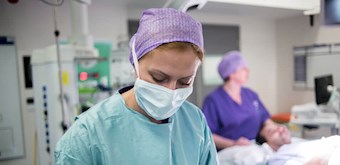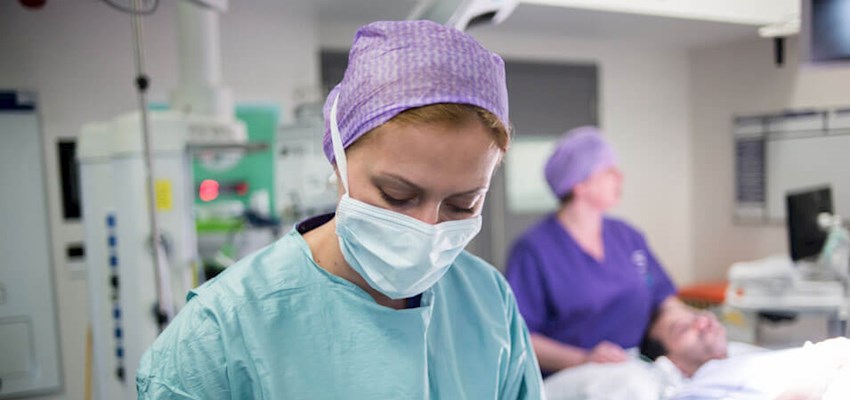Peritonitis
Inflammation of the walls of the abdomen causes and symptoms
HCA UK experts talk you through the main symptoms of peritonitis and explain why it’s important to be treated quickly
About peritonitis
The peritoneum is the inner lining of the abdomen. When this becomes infected, it causes peritonitis which means inflammation. This can rapidly spread around the body infecting other organs covered by this lining, such as the kidneys, liver and bowel.
Need to know
-
Symptoms of peritonitis icon plus
Common causes of peritonitis include:
- a burst stomach ulcer or a burst appendix
- digestive problems, such as Crohn's disease or diverticulitis
- pelvic inflammatory disease
- pancreatitis
- surgery
- injury to the stomach
- cirrhosis
If you notice any of the following symptoms of peritonitis it’s important to see your GP immediately, or go to A&E:
- sudden tummy pain that gets worse when you touch it
- a high temperature of 38°C or above
- rapid heartbeat
- difficulty urinating, or peeing much less than normal
Other symptoms include a lack of appetite, swollen tummy, feeling sick and vomiting. -
Diagnosis icon plus
If you experience any of the symptoms, it’s important to see a GP or consultant quickly as serious complications like sepsis can happen if the infection spreads. If it’s left untreated, peritonitis can even be life-threatening.
In order to diagnose peritonitis, your consultant may carry out one or more of the following tests:
- blood test
- x-ray or ultrasound
- fluid analysis (taking a fluid sample from the peritoneum using a thin needle)
If you're diagnosed with peritonitis, hospital treatment will be needed to clear up the infection. -
Potential treatment options icon plus
Treatment usually involves up to two weeks of antibiotics given via a needle into the vein. If the infection was caused by peritoneal dialysis (kidney failure treatment), antibiotics may be injected directly into the peritoneum (lining of your tummy).
If the infection has made serious damage to the stomach lining, you may need surgery to remove it.
Some people develop abscesses in the lining. These are drained with a needle using a local anaesthetic.
It’s common to have problems digesting food, so you may need a feeding tube. This will be either passed into your stomach through your nose, or placed inside your stomach using keyhole surgery.
Our consultants
We're proud to work with leading experts across a range of medical fields, whose skills are matched by their integrity and compassion.




Our facilities
From complex surgery to straightforward procedures, we provide exceptional care across our network of hospitals, outpatient centres and specialist clinics.
Book an appointment
Our team can help with any enquiries or you can make an appointment with one of our experienced consultants.
Call us today
020 7079 4344
This content is intended for general information only and does not replace the need for personal advice from a qualified health professional.